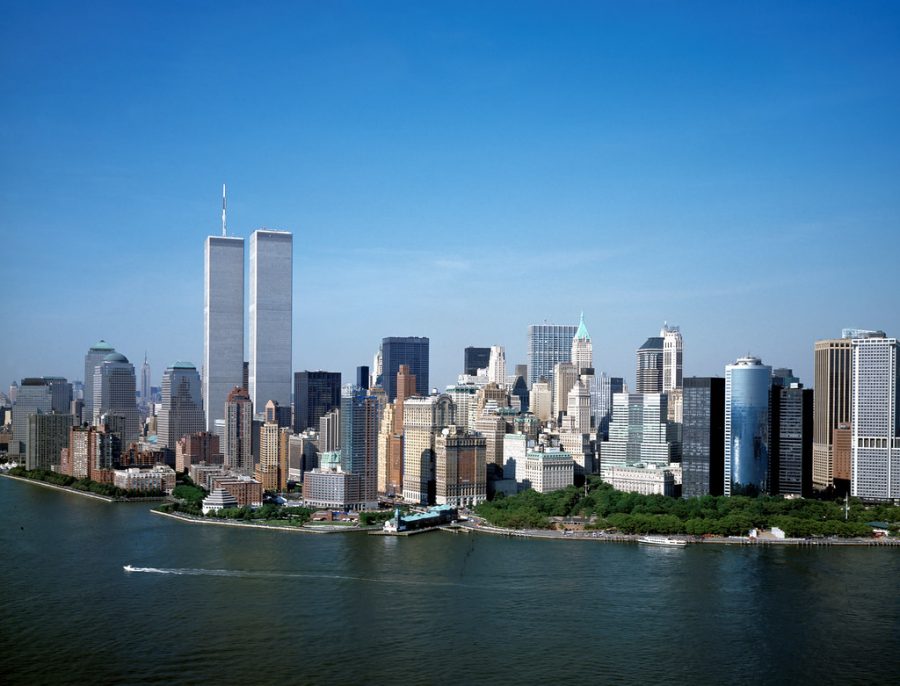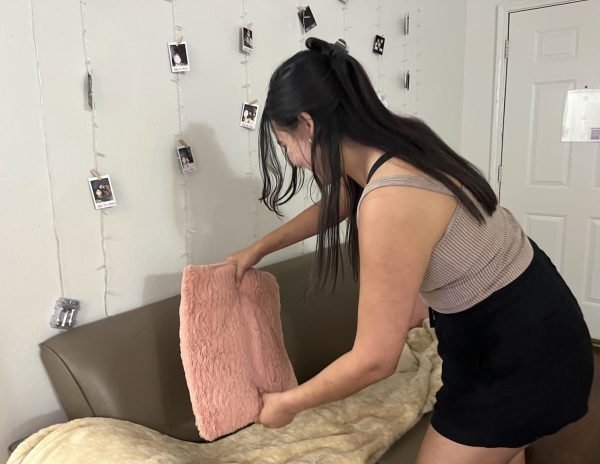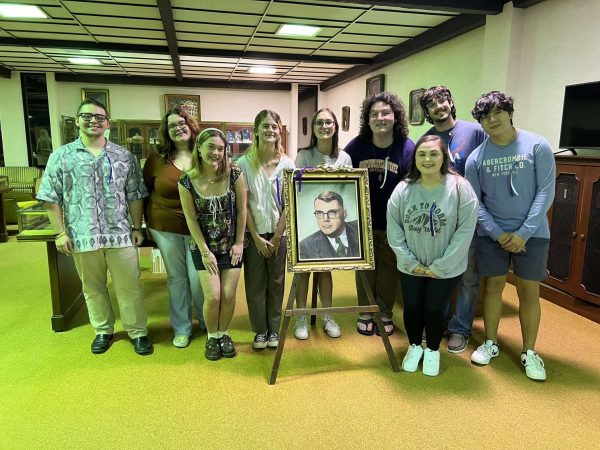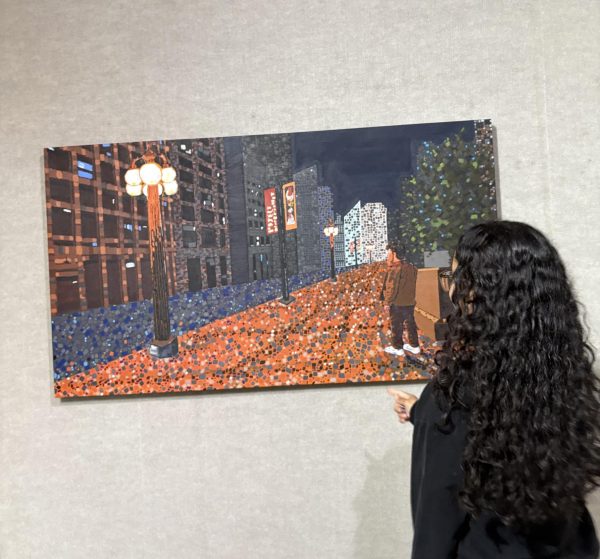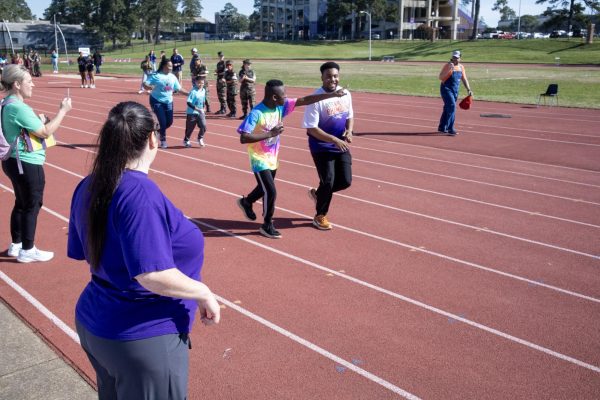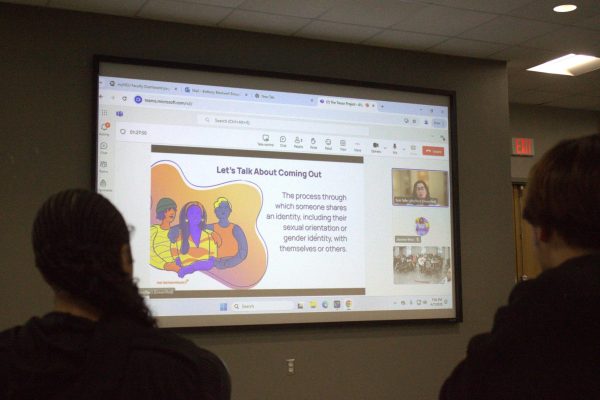A strange and terrible day
At times there were tears and great heaving sobs. At other times, the depths of grief and shock and horror swallowed them whole.
The morning of Tuesday, Sept. 11, 2001, promised a beautiful day in the New York City area. The morning sky was a cloudless blue, the day warm but not hot, with low humidity, a hint that the change of seasons was just a few weeks away.
My day started as every weekday had in the six weeks we’d been living in Port Washington, a picturesque town on the north shore of Long Island, just east of the location that had served as the inspiration for “The Great Gatsby.”
Just a short drive from our apartment, you could find multi-million dollar mansions, and, on a clear day, you could look across Long Island Sound and see the towering skyscrapers of lower Manhattan. The twin towers dominated the skyline, especially at this distance. They gleamed a soft silver, rising high above the city.
In our six weeks in the metro area, we had spent the weekends exploring our new home, a place I had never expected or desired to live. But here we were, and there were beaches to explore on the island, as well as places like Montauk and the Hamptons out east.
We had hiking guides for New Jersey, and had found some lovely spots in the Palisades; one path led through a tangle of wild blueberries, ripe and delicious.We had visited a few of the quaint towns of Connecticut like Mystic Seaport, but had not yet done much exploring in New York City.
As a native of Bossier City, NYC was a bit intimidating to me. But we definitely wanted to take advantage of our proximity, and our list included seeing interesting live theater, visiting Ellis Island, the Statue of Liberty and, of course, the observation deck of the World Trade Center.
I could remember the daring (and illegal) walk of Phillip Petit in 1974 (and his subsequent arrest) and wanted to see where that had happened.
The day began like all workdays did, with a quick dash to the local station of the Long Island Railroad, where my husband caught the first of two trains to his office on the campus of Seton Hall University in South Orange, NJ.
We had been doing this long enough to know that not all available trains were the right train for him. His outgoing connection from Penn Station was “off peak” because he was traveling away from Manhattan, and those trains departed every 50 minutes or so.
This meant that, despite the fact that trains left our town every 8 to 10 minutes each morning, only a few of those allowed for an easy connection to an outbound train to New Jersey. If he didn’t make the 7:19 a.m. train, the next good option was at 8:08 a.m.
We also knew that it took between 7 and 12 minutes to get from our apartment to the station, depending on traffic, red lights and the unpredictable resident flock of Canadian geese who occasionally brought traffic to a halt. The 7:19 a.m. train was always the goal.
We left that morning with just enough time to make it, if circumstances were perfect. As it turned out, they were.
Feeling a small sense of personal triumph, I set the car radio to National Public Radio and returned to the apartment to start my Tuesday morning routine: coffee, breakfast, more of the local National Public Radio station (WNYC) for the national news, followed by the Brian Lehrer show, a local news and issues program that I had already come to love.
A major topic of the day was the mayoral primary in the city; the current mayor, Rudolph Giuliani, was prohibited from seeking another term, so the field was bigger than usual and local interest was high.
Since I had no obligations on campus at Adelphi University, my Tuesdays were devoted to listening to WNYC, preparing lessons for my new classes on a new campus, reading student work and the week’s laundry.
A cup of Community Coffee in hand, I was wandering about, collecting the laundry, hoping to get it done quickly so I could do other things in the afternoon and eagerly awaiting the end of Morning Edition and the start of Brian’s show. I was learning more about my new environment, and becoming more enthusiastic about starting to explore it, and Brian’s show was helping with that.
In the midst of national headlines and election hype, a sudden announcement was made of an explosion at one of the towers of the WTC. Few details were known at the time, but more information was promised.
I called my husband, who had just arrived in South Orange, and told him what WNYC had reported, and he said he would call me back from campus. He could see lower Manhattan from the top of the parking garage, so he was going to go there and report back to me.
I hung up and went to turn on the TV, something I never do in the morning. I also turned on the computer and spent the next several hours listening to the radio and bouncing between the room with the TV and the room with the computer.
From time to time, as the tragedies unfolded, I would find myself standing alone in a random location in that apartment, holding towels or t-shirts or some other incomprehensible bits of fabric that I had collected from somewhere and then forgotten even as I held them. It was, after all, Tuesday, and the laundry had to be done.
At times there were tears and great heaving sobs. At other times, the depths of grief and shock and horror swallowed them whole.
I did not speak by telephone again to anyone until much later that afternoon. The cell network was quickly overloaded that morning, so calls and texts aren’t going through, and we didn’t have a regular landline.
Something called Instant Messenger was our only means of communication, and it only worked when my husband was at his computer. But like everyone else, he was gathered with others to watch the horrors unfolding on any of the local TV stations at a TV someone had set up in their conference room, streaming video wasn’t yet available.
From time to time, just in case, I would pick up my phone, and go through my list: Call husband, mom, sister, friends, then text them. Nothing connects. Repeat once, twice, uncountable times. Put the phone on the kitchen counter. Check IM. Wait.
Finally, the dirty clothes and supplies were gathered, and I set out into the world to perform what seemed, at that moment, to be utterly ridiculous in its ordinariness. On the street, I saw cars flying American flags, sometimes one on each side, from the roof, displays typically unseen in suburban New York.
So many flags, sprouting like mushrooms after a heavy rain. I never found out where they all came from.
In the laundromat around the corner, my body performed the necessary tasks, a sort of household muscle memory; inside, my thoughts were like mice, running hither and thither, uncatchable.
The world was surreal, I was a zombie, so were the few others in the laundromat. Some sort of music was playing, not the news. We watched the laundry go around and around in the dryers; no one was reading anything, not even me.
But finally, my laundry was clean, dry, folded and tucked into baskets, somehow. Muscle memory. I went home to send another IM to my husband and waited for a reply.
Now the news was full of anguished, damaged people, covered in the dust of two 110-story buildings and their pulverized contents. (When we finally went there, some three weeks later, much of lower Manhattan was still covered in that dust, in the still-closed stores, behind the glass, in the darkness.)
Frantic people were holding hastily-created flyers, desperate to find loved ones. New videos of the planes, the billowing clouds, the injured, the people walking from all over Manhattan to cross bridges into Brooklyn, Queens and the Bronx on foot.
New Yorkers were lining up for blocks all over the city to donate blood that was never needed. All of the subways in Manhattan, and the bridges, highways, tunnels and trains into the city were closed to everything but emergency vehicles.
For perhaps the first time, I became very conscious of the significance of the “island” part of Long Island. Island. Only connected to the mainland by bridges, all of which were in New York City, a place I couldn’t get into. I was trapped on the island, and my only family in the area was in New Jersey, on the mainland.
Ironically, that was the situation because we had managed to make the 7:19 a.m. train, so my husband got to take the early connection out of Manhattan. If he had had to take the 8:08 a.m. instead, he would’ve gotten trapped in Manhattan, a place it was now possible to get out of but not into.
In the context of that day, our personal challenges were minimal but, like the laundry, needed to be dealt with. He wanted to be home, and I wanted him home. Like everyone else, we needed our loved ones, safe and with us.
I was acutely aware of how fortunate I was to know that my loved one was safe. Now, how to get to him?
At some point, that afternoon, one of us remembered that there were two ferries from Long Island to Connecticut, one at Port Jefferson, mid-island and another at Orient Point, at the far eastern end. At last, a plan. Something to do that required focus and purpose.
After confirming online that they were operating (but not taking reservations), I drove east for an hour to Port Jeff to get in a line that was estimated at three and a half hours, to take a beautiful ride on this terrible day, a journey to be relished at any other time. To land in Connecticut, two states from my destination.
I resolved to wait, and got out of the car to join others who would be my linemates and probable ferrymates for the next four to five hours. We shared what news we had, but our shock eventually overwhelmed our ability to make small talk, and we began drifting back to our cars for more news.
Then, suddenly, my husband called. One bridge, the one I wanted, had been opened. I shared my news with the people nearest me and saw the news rippling out. I returned to my car, got out of line, and headed back west. Some cars followed, others remained in line. Traffic was very light for most of the way back west.
More muscle memory got me there.
Near the border between Nassau County (part of what is customarily called Long Island) and Queens (still actually on the island), traffic ground to an absolute halt. Just stopped. Multiple lanes, full of unmoving vehicles in every direction, and there were five of them, as far as the eye could see.
For two hours, two hours, I sat there, in a daze, listening to the news, changing stations to see if there was something different being reported. Looking around at the other people in their cars, and seeing my mental state reflected in their faces and body postures. Realizing that in a massive, lengthy traffic jam, I had heard not one car horn. I rolled down a window. Silence.
It didn’t feel like a long time, and it felt like forever. But impatience was impossible. Just rely on muscle memory and try to do what needs to be done.
Eventually, traffic began to inch forward. Somehow, this knot began to unravel itself. People took turns, and we started making slow but steady progress toward our various destinations.
No one ever used their horn. The silence was unearthly and unnerving.
Shortly after the transition into Queens, traffic in my direction simply evaporated, and I was again in very light traffic as I crossed the Throgs Neck Bridge, from Queens to the Bronx, a route that affords a clear view of lower Manhattan.
Now, in near-total darkness. Near-total because of the dozens of intense lights that were shining on what came to be known as The Pile. Light streamed out through the other buildings, filtering through the clouds of smoke and ash and dust and destroyed lives, rising from the site. Alien. Surreal. Horrifying.
The rest of the trip is now a blur in my memory. I arrived, we embraced, we departed for home. Sometime between 3 a.m. and 4 a.m., we were finally there. Together, with our kitties, and each other. We watched some more news, and eventually, inevitably, we slept.
When we woke, there was more news, more videos, more anguish and heartbreak. We, like everyone, tried to look around, collect what pieces we could and move forward into the days to come.
But at least the laundry was done.





















